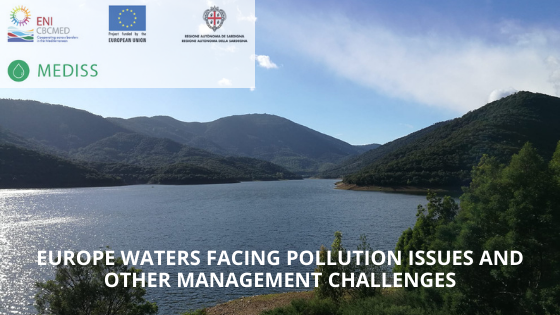[MEDISS] Europe waters facing pollution issues and other management challenges

Mediss continues in-depth analysis of water management scenarios: discover why already available measures need to be improved to protect water bodies’ health.
The European Environment Agency (EEA) has published a report entitled “Drivers of and pressures arising from selected key water management challenges — A European overview”.
Water bodies in Europe suffer mainly from pollution arising from agricultural practices and inadequately treated wastewater from different sources, including air pollutants. Nearly a quarter of Europe’s surface water bodies and groundwater areas are extensively affected by agricultural pollution. Furthermore, 6 % of surface water bodies and 17 % of the groundwater area suffer from overexploitation related to human water uses.
Water management practices are the core intervention area of MEDISS. It focuses on the quality and quantity of groundwaters, especially if menaced by salinization and by pollution. By supporting alternative irrigation, higher quality and, more diversified products, MEDISS addresses the most critical water-related issues in Europe and the Mediterranean. Moreover, it contributes to behavioral change on the use of non-conventional water and on environmentally and economically sustainable resources exploitation.
The EEA report lists several challenging issues that involve poor water management practices.
Generally, a reduced implementation of the existing legislation and water-using sectors management practices affect water ecosystems.
Someway surprisingly, wastewaters both from urban and industrial uses are still between the primary sources of pollution.
Furthermore, the natural dynamic of one over three surface water bodies is significantly affected by structural changes over their course.
Barriers and water withdrawal have a relevant impact on river biodiversity and health. Invasive alien species are frequently observed on European watercourses, worsening the effects on ecosystems. Navigation practices, for instance, are reported to increase both structural changes and alien species population in water bodies.
The scenario seems worsened by a general reduction of water availability due to seasonal or long-lasting drought events.
By combining water scarcity and increased human withdrawal, it seems mandatory to adopt effective water management practices on a large scale, a pathway followed by the MEDISS project activities.









